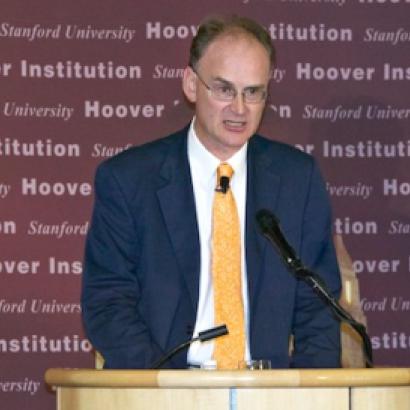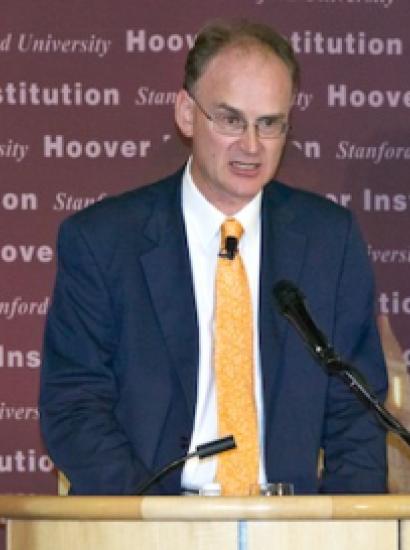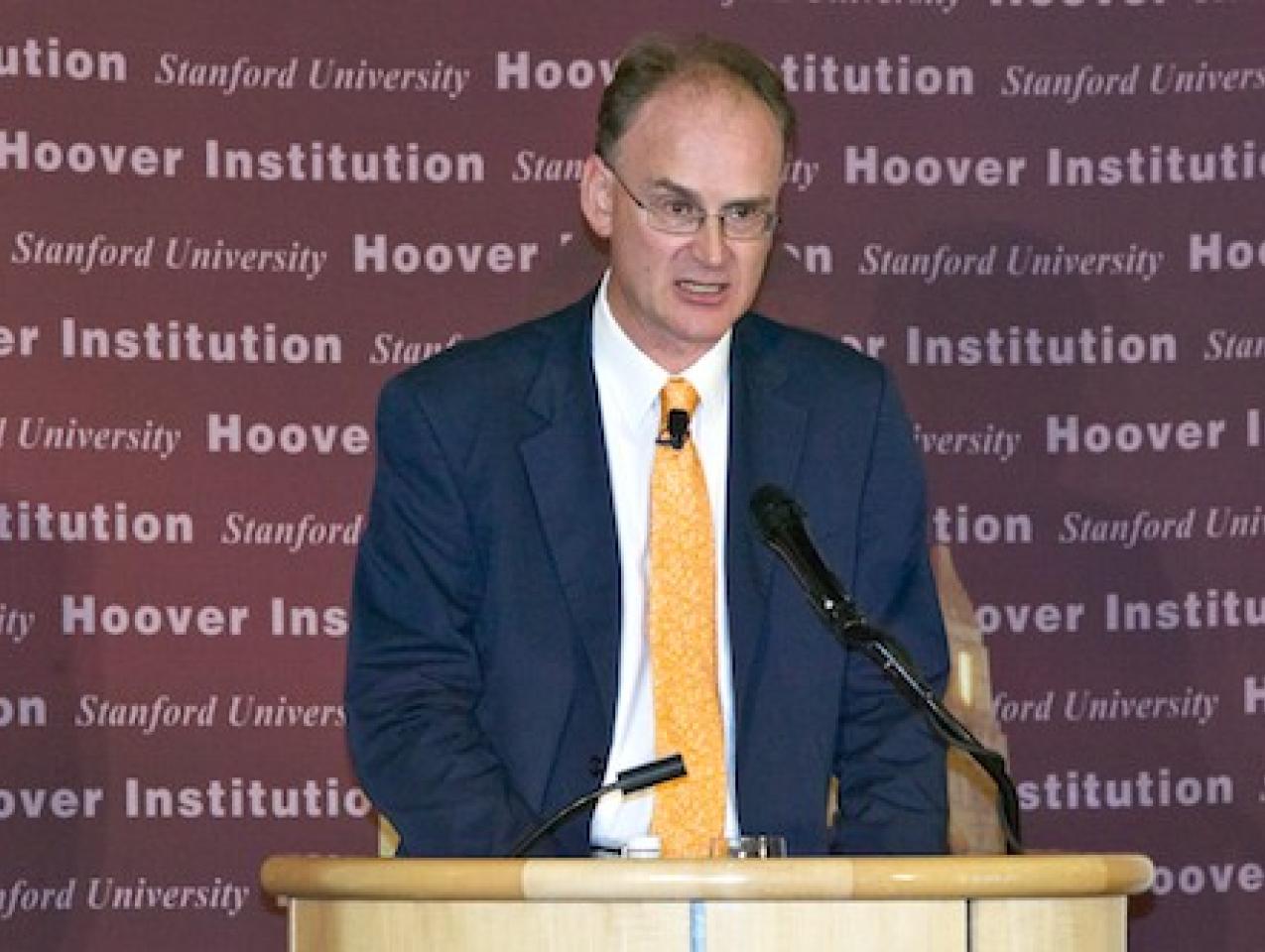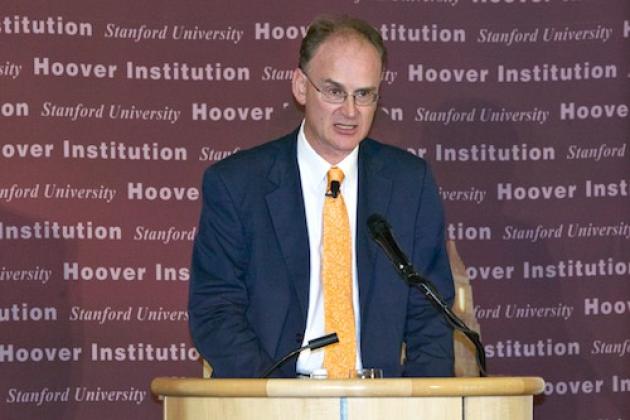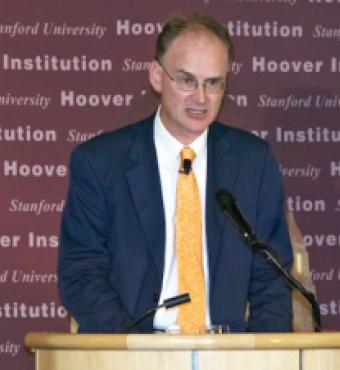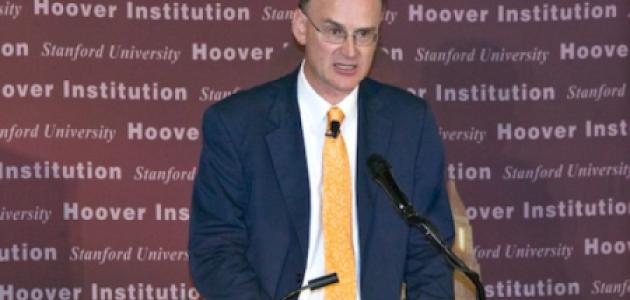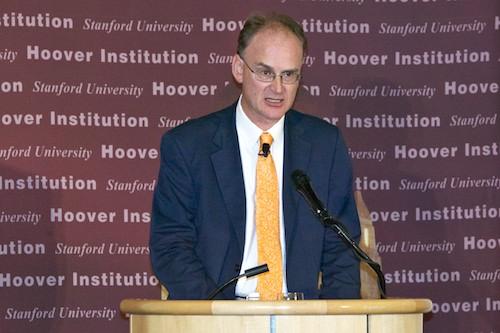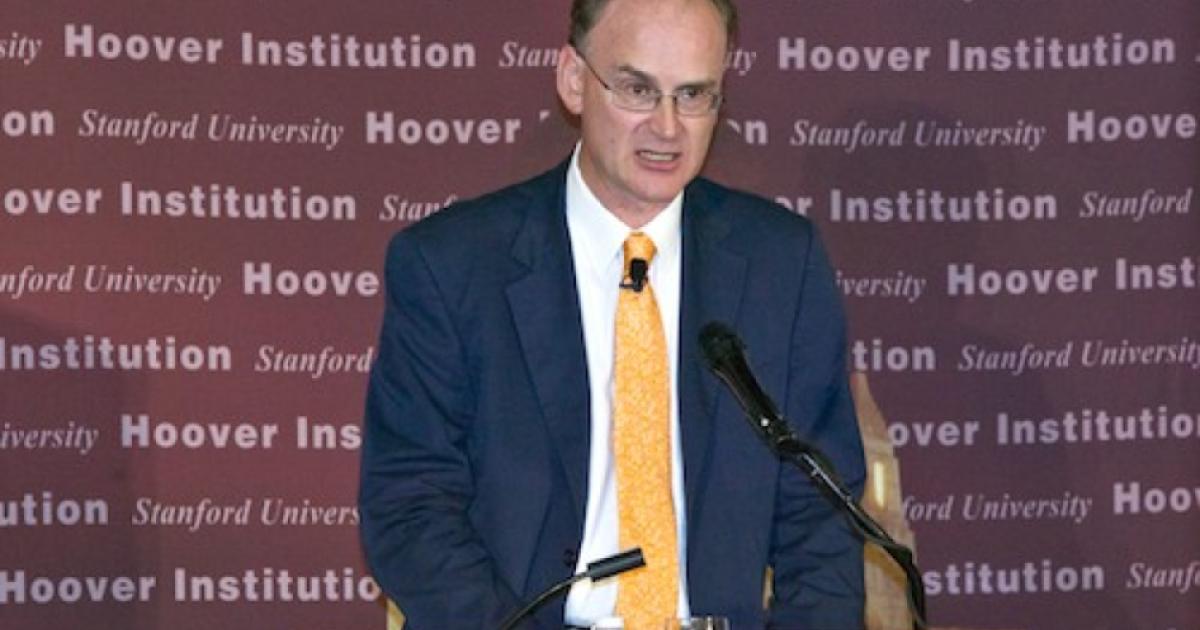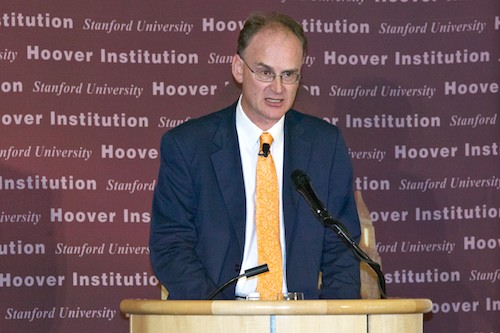
STANFORD—The Hoover Institution hosted a donor retreat on November 17 and 18 during which experts in their fields discussed timely political and economic matters. Hoover’s information channel Advancing a Free Society and its social networking efforts via Facebook and Twitter were highlighted by John Raisian, the Tad and Dianne Taube Director of the Hoover Institution, in his welcoming remarks. Calling Hoover a “unique, intellectual asset in the country,” Raisian added that people and the political leadership could look to Hoover for expertise on public policy issues.
Topics covered by the speakers at the retreat included a postelection President Obama, federalism, the economy, Social Security, health care reform, and an analysis of the election results.
How will President Obama respond to the midterm election in which his party lost the House to the Republicans and lost six seats in the Senate? “It’s a dramatic moment for him,” said Shelby Steele, the Robert J. and Marion E. Oster Senior Fellow at the Hoover Institution, who raised the question of whether President Obama can pivot now that he has run into resistance.
In his talk, “Obama: After the Election,” Steele said Obama had come into office as a transformer, not a caretaker, and experienced the “most severe rebuke” by Americans in the election. After reviewing the political and cultural influences that have shaped him, Steele concluded that Obama would have to “completely reinvent himself.”
Jonathan Rodden, a W. Glenn Campbell and Rita Ricardo-Campbell National Fellow at the Hoover Institution and a Stanford political science professor, gave a presentation titled “Moral Hazard and the Future of Federalism in Europe and the United States” in which he discussed concerns regarding federalism and a lack of fiscal discipline. “Market discipline has worked well in the United States. It is worth preserving, in spite of challenges. In the long run, it is Europe’s best hope for improved fiscal discipline,” said Rodden.
“I’m cautiously optimistic about the future, but a lot needs to be done,” said Hoover senior fellow and Stanford economist Michael Boskin. He discussed the strength of the economic recovery and the extent of the permanent growth of the government in his talk “The Uncertain Economy: Diagnosis and Prescription.”
Although Americans express satisfaction with the health care they receive, many find fault with the U.S. health care system overall. Hoover senior fellow Scott Atlas, also a Stanford University Medical Center professor, attributes this paradox to widespread misinformation, in which problems with the system are distorted and facts pointing to the excellence of the health care system are ignored.
In his presentation “America’s Health Care: Ignored Facts and Disregarded Options,” Atlas offered steps to increase competiveness in health insurance markets and to empower consumers so that costs come down driven by consumers, not dictated by government, including
- Repeal mandate-created distortions of health insurance markets
- Allow cross-state purchasing of insurance
- Revamp the tax treatment of health care expenses
- Expand consumer choice by increasing the availability of insurance
- Force transparency on the system’s costs
- Address problems in the medical liability system
The financial shape of the federal government’s largest domestic program, Social Security, was the topic of a presentation by Hoover research fellow Charles Blahous, one of the country’s foremost retirement policy experts. Blahous is a public trustee for Social Security and Medicare and was a deputy director of the National Economic Council under President George W. Bush. Drawing on research from his forthcoming book Social Security: The Unfinished Work (Hoover Institution Press, 2011), Blahous argued that a financial shortfall is likely and recommended that action be taken sooner rather than later.
In his presentation “Election Postmortem,” Hoover senior fellow Morris Fiorina, also a Stanford political science professor, stated that the recent election was “the greatest midterm loss since 1938.” Fiorina’s analysis of the election delved into the extent of the Democrats’ reversal of fortune. Fiorina showed—in addition to the seats the Republicans gained in the House and Senate, sixty-two and six respectively—that Republicans also gained seven governorships and seventeen chambers of state legislatures in the election. Although some statewide elections are still being determined, approximately 680 seats in state legislatures also changed from Democrat to Republican. The dominant party in Congress has frequently changed in the postwar period, Fiorina cautioned, as he examined the factors that influenced voters, including the recession and high expectations on the part of voters that were disappointed.
The retreat opened on Wednesday, November 17, with before-dinner remarks by Matthew Ridley, a zoologist and author of popular books on science. In his most recent book, The Rational Optimist: How Prosperity Evolves, he argues that humans progress when they trade and that the most productive trading relationships are based on trust.







